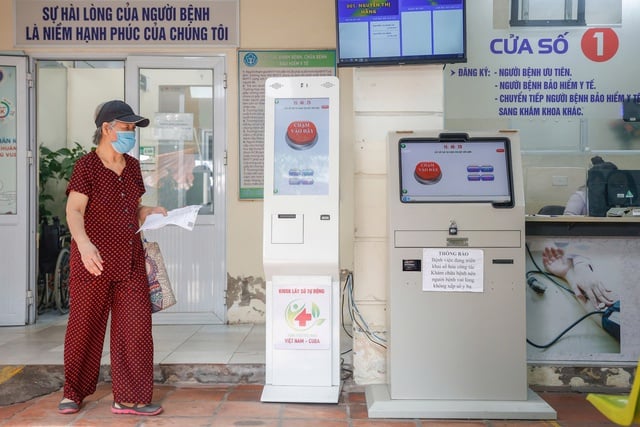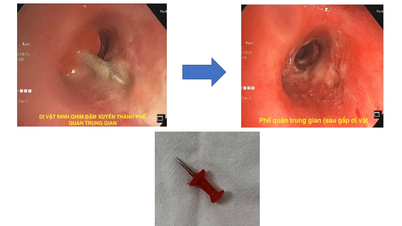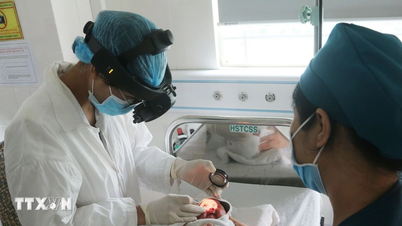Hospital self-publishes electronic medical records
Currently, only 270 hospitals have announced the implementation of electronic medical records (abbreviated as electronic medical records) to replace paper medical records, out of about 1,400 hospitals nationwide. The main reason for the slow implementation is that many medical facilities still face difficulties in funding, technological infrastructure, and human resources.

At Vietnam - Cuba Hospital ( Hanoi ), electronic medical records help reduce paperwork and provide transparency in treatment information.
PHOTO: TUAN MINH
The above information was announced by a representative of the Ministry of Health at a workshop on solutions for implementing electronic medical records, organized by the National Center for Health Information (Ministry of Health) on July 17.
According to the National Center for Health Information, electronic medical records are one of the important pillars in the digital transformation roadmap of the health sector, contributing to improving the quality of medical examination and treatment, optimizing the management, storage and sharing of medical information, while ensuring the accuracy, connectivity and confidentiality of people's health data.
At the workshop, Mr. Do Truong Duy, Director of the National Center for Health Information, said that the Prime Minister has directed localities to deploy electronic medical records so that localities have a basis to allocate funds to medical facilities for implementation.
The Prime Minister also assigned the Ministry of Health to direct hospitals nationwide to complete the implementation of electronic medical records, the deadline is September 30. The Ministry of Health has issued a document requesting the issuance of a resolution of the provincial/municipal Party Committee on the implementation of electronic medical records, in order to mobilize the participation of the political system in the implementation.
"The implementation of electronic medical records cannot be delayed any longer," said Mr. Duy, adding that according to the latest guidance from the Ministry of Health, electronic medical records are implemented by hospitals themselves according to the technical guidance on implementing electronic medical records, and self-announced, without having to wait for the Ministry of Health to appraise and announce. In fact, 270 hospitals have successfully implemented it. Therefore, the implementation depends on the determination of hospital leaders.
Avoid waste in deployment
According to feedback from units, the main reason for the slow implementation of electronic medical records is that many medical facilities still face difficulties in terms of funding, technology infrastructure, and human resources in the field of medical information technology because information technology costs are not yet included in the price of medical services.
Proposing solutions to remove financial obstacles for hospitals, Mr. Pham Ngoc Duc, Director of 06 Program Implementation (Mobifone global, Ministry of Public Security), said that units can rent cloud data storage or rent on-site infrastructure. At the same time, when implementing electronic medical records, hospitals need to be given specific "questions" about their needs.
"Currently, the cost of implementing electronic medical records has many different levels, up to billions of VND. If you do not research carefully, you can waste your budget without using all the criteria features. But if you invest or hire at a low cost, you need to require the supplier to explain the argument closely, to avoid the case where the cost is low but sometimes does not meet the hospital's requirements," Mr. Duc noted.
According to information from some hospitals that have implemented electronic medical records, the cost savings from not having to buy film to print diagnostic imaging results can be up to hundreds of billions of VND/year. In addition, compared to paper medical records, electronic medical records help cut costs by saving a large amount of stationery...
In particular, electronic medical records help ensure complete transparency in compliance with professional regulations (diagnosis, prescription, test orders throughout the admission and treatment process).
Source: https://thanhnien.vn/309-la-thoi-han-cuoi-cung-khai-tu-benh-an-giay-185250717163417429.htm














































































































Comment (0)